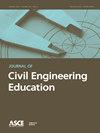M. LaPatin, Sara Barrens, C. Poleacovschi, B. Vaziri, Lauryn A. Spearing, Kate Padgett-Walsh, S. Feinstein, C. Rutherford, L. Nguyen, K. Faust
{"title":"危机中的工程:观察学生在流行病和自然灾害期间对宏观伦理责任的看法","authors":"M. LaPatin, Sara Barrens, C. Poleacovschi, B. Vaziri, Lauryn A. Spearing, Kate Padgett-Walsh, S. Feinstein, C. Rutherford, L. Nguyen, K. Faust","doi":"10.1061/jceecd.eieng-1909","DOIUrl":null,"url":null,"abstract":"When the ethical responsibilities of engineers are discussed in classrooms, the focus is usually on microethics, which concentrates on individual decision-making, rather than macroethics, that addresses broad societal concerns. Pandemics (e.g., COVID-19) and natural disasters (e.g., hurricanes, derechos) have presented unique opportunities to observe engineering macroethical responsibilities, because unjust social, economic, and environmental systems have been brought to the forefront amidst the responses (e.g., inequitable transportation access). In this paper, we consider pandemics and natural disasters through the lens of engineering macroethics, aiming to understand students' perceptions about the macroethical responsibilities of engineers. In the fall of 2020, we deployed a survey to undergraduate engineering students at two universities (n=424). Students were asked to discuss what they perceived to be the role of engineering professionals in response to the global COVID-19 pandemic and natural disasters. We used a qualitative content analysis to explore the macroethical responsibilities mentioned in students' responses. Many of these responses include considerations of infrastructure resilience, resource distribution, and community equity. Logit models were used to identify which sociodemographic factors were associated with responses that included macroethical responsibilities, revealing engineering major (specifically, civil engineering), employment status, gender identity, and family size, among others as significant factors. The implications from this study include recommendations on curricular content, and identifying which student sociodemographic groups would especially benefit from macroethical content in coursework. © 2023 American Society of Civil Engineers.","PeriodicalId":48476,"journal":{"name":"Journal of Civil Engineering Education","volume":"37 3 1","pages":""},"PeriodicalIF":1.8000,"publicationDate":"2023-01-01","publicationTypes":"Journal Article","fieldsOfStudy":null,"isOpenAccess":false,"openAccessPdf":"","citationCount":"0","resultStr":"{\"title\":\"Engineering in a Crisis: Observing Students’ Perceptions of Macroethical Responsibilities during Pandemics and Natural Disasters\",\"authors\":\"M. LaPatin, Sara Barrens, C. Poleacovschi, B. Vaziri, Lauryn A. Spearing, Kate Padgett-Walsh, S. Feinstein, C. Rutherford, L. Nguyen, K. Faust\",\"doi\":\"10.1061/jceecd.eieng-1909\",\"DOIUrl\":null,\"url\":null,\"abstract\":\"When the ethical responsibilities of engineers are discussed in classrooms, the focus is usually on microethics, which concentrates on individual decision-making, rather than macroethics, that addresses broad societal concerns. Pandemics (e.g., COVID-19) and natural disasters (e.g., hurricanes, derechos) have presented unique opportunities to observe engineering macroethical responsibilities, because unjust social, economic, and environmental systems have been brought to the forefront amidst the responses (e.g., inequitable transportation access). In this paper, we consider pandemics and natural disasters through the lens of engineering macroethics, aiming to understand students' perceptions about the macroethical responsibilities of engineers. In the fall of 2020, we deployed a survey to undergraduate engineering students at two universities (n=424). Students were asked to discuss what they perceived to be the role of engineering professionals in response to the global COVID-19 pandemic and natural disasters. We used a qualitative content analysis to explore the macroethical responsibilities mentioned in students' responses. Many of these responses include considerations of infrastructure resilience, resource distribution, and community equity. Logit models were used to identify which sociodemographic factors were associated with responses that included macroethical responsibilities, revealing engineering major (specifically, civil engineering), employment status, gender identity, and family size, among others as significant factors. The implications from this study include recommendations on curricular content, and identifying which student sociodemographic groups would especially benefit from macroethical content in coursework. © 2023 American Society of Civil Engineers.\",\"PeriodicalId\":48476,\"journal\":{\"name\":\"Journal of Civil Engineering Education\",\"volume\":\"37 3 1\",\"pages\":\"\"},\"PeriodicalIF\":1.8000,\"publicationDate\":\"2023-01-01\",\"publicationTypes\":\"Journal Article\",\"fieldsOfStudy\":null,\"isOpenAccess\":false,\"openAccessPdf\":\"\",\"citationCount\":\"0\",\"resultStr\":null,\"platform\":\"Semanticscholar\",\"paperid\":null,\"PeriodicalName\":\"Journal of Civil Engineering Education\",\"FirstCategoryId\":\"5\",\"ListUrlMain\":\"https://doi.org/10.1061/jceecd.eieng-1909\",\"RegionNum\":4,\"RegionCategory\":\"工程技术\",\"ArticlePicture\":[],\"TitleCN\":null,\"AbstractTextCN\":null,\"PMCID\":null,\"EPubDate\":\"\",\"PubModel\":\"\",\"JCR\":\"Q3\",\"JCRName\":\"EDUCATION, SCIENTIFIC DISCIPLINES\",\"Score\":null,\"Total\":0}","platform":"Semanticscholar","paperid":null,"PeriodicalName":"Journal of Civil Engineering Education","FirstCategoryId":"5","ListUrlMain":"https://doi.org/10.1061/jceecd.eieng-1909","RegionNum":4,"RegionCategory":"工程技术","ArticlePicture":[],"TitleCN":null,"AbstractTextCN":null,"PMCID":null,"EPubDate":"","PubModel":"","JCR":"Q3","JCRName":"EDUCATION, SCIENTIFIC DISCIPLINES","Score":null,"Total":0}
引用次数: 0
Engineering in a Crisis: Observing Students’ Perceptions of Macroethical Responsibilities during Pandemics and Natural Disasters
When the ethical responsibilities of engineers are discussed in classrooms, the focus is usually on microethics, which concentrates on individual decision-making, rather than macroethics, that addresses broad societal concerns. Pandemics (e.g., COVID-19) and natural disasters (e.g., hurricanes, derechos) have presented unique opportunities to observe engineering macroethical responsibilities, because unjust social, economic, and environmental systems have been brought to the forefront amidst the responses (e.g., inequitable transportation access). In this paper, we consider pandemics and natural disasters through the lens of engineering macroethics, aiming to understand students' perceptions about the macroethical responsibilities of engineers. In the fall of 2020, we deployed a survey to undergraduate engineering students at two universities (n=424). Students were asked to discuss what they perceived to be the role of engineering professionals in response to the global COVID-19 pandemic and natural disasters. We used a qualitative content analysis to explore the macroethical responsibilities mentioned in students' responses. Many of these responses include considerations of infrastructure resilience, resource distribution, and community equity. Logit models were used to identify which sociodemographic factors were associated with responses that included macroethical responsibilities, revealing engineering major (specifically, civil engineering), employment status, gender identity, and family size, among others as significant factors. The implications from this study include recommendations on curricular content, and identifying which student sociodemographic groups would especially benefit from macroethical content in coursework. © 2023 American Society of Civil Engineers.

 求助内容:
求助内容: 应助结果提醒方式:
应助结果提醒方式:


